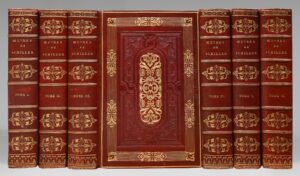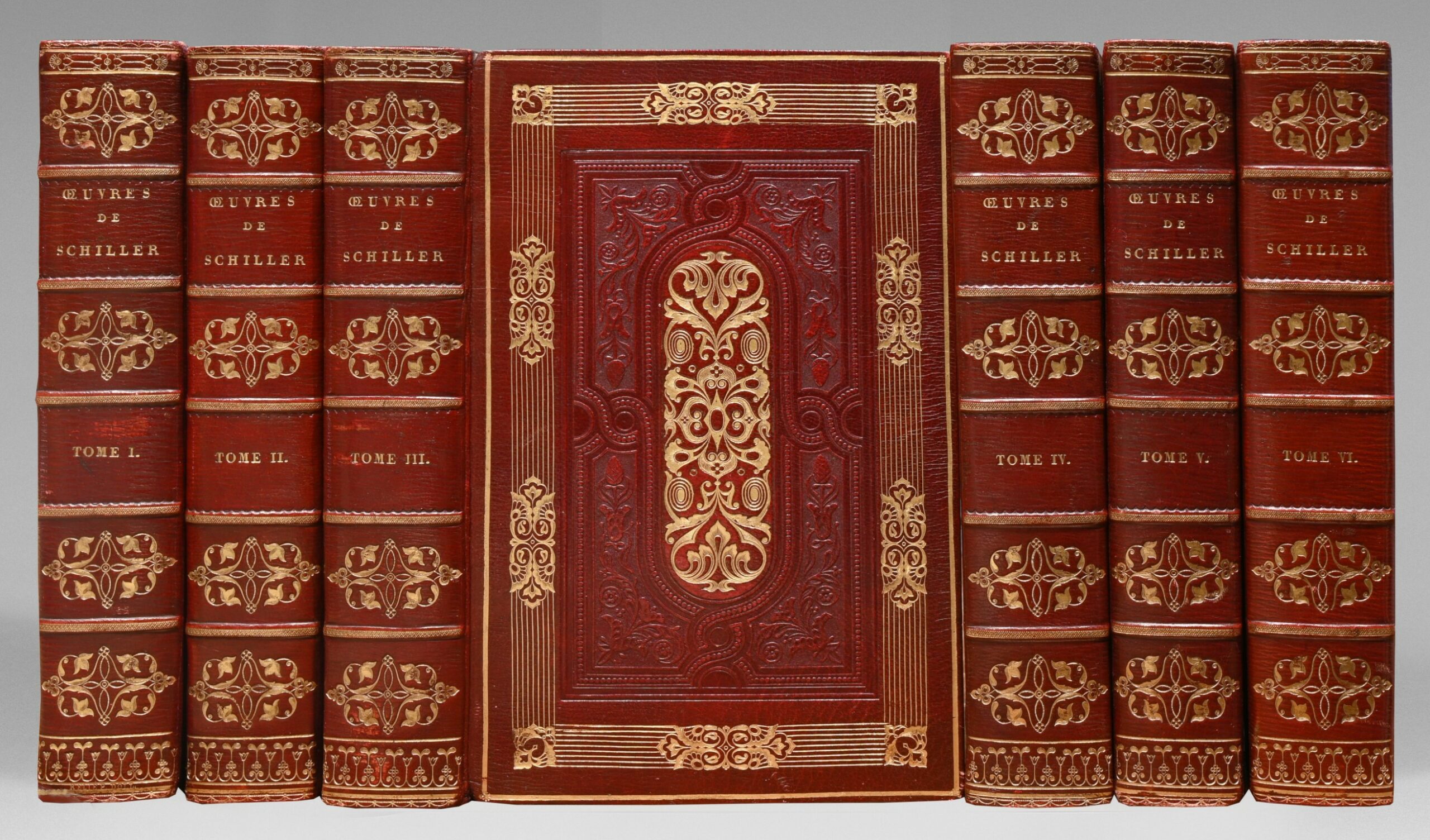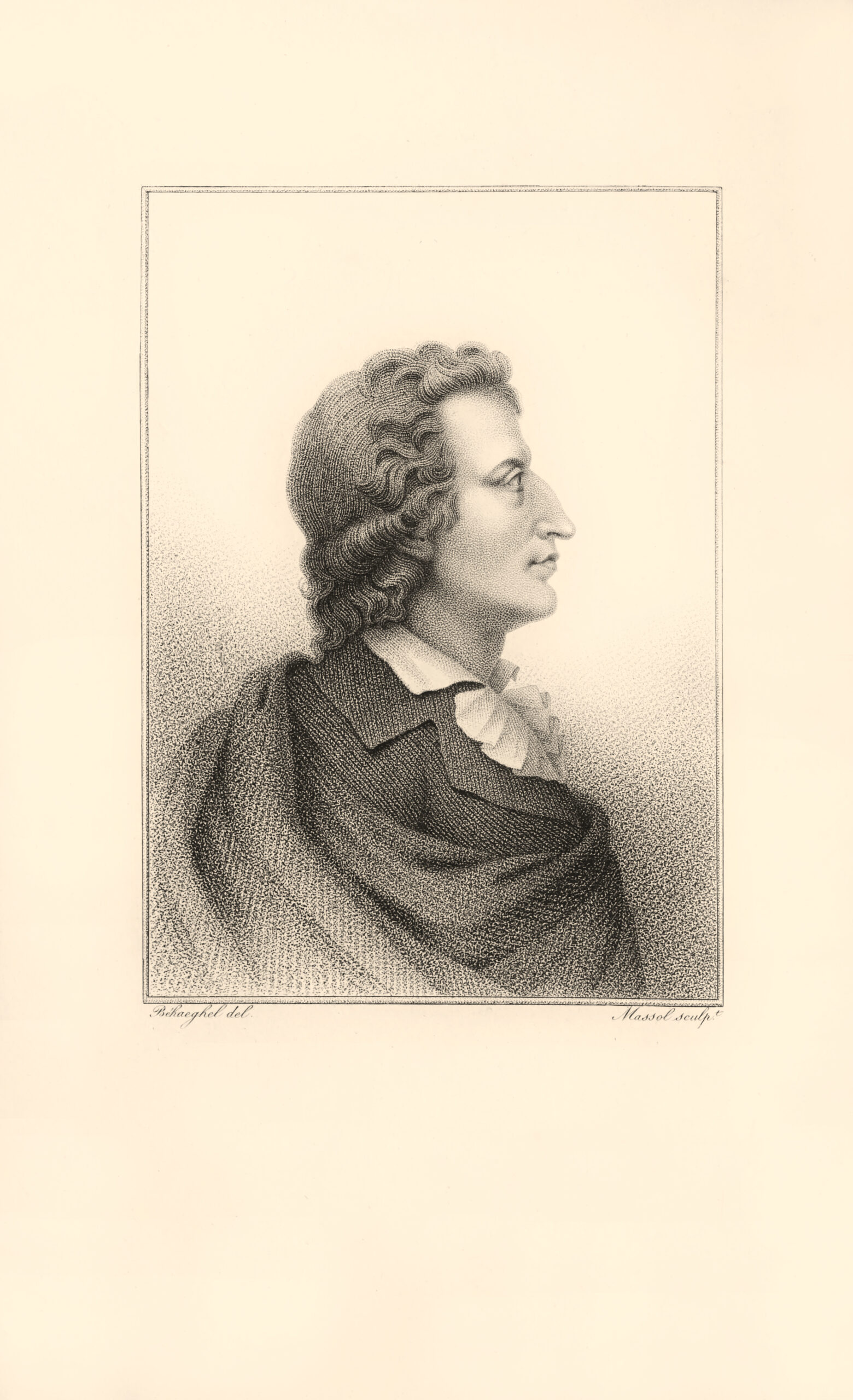Paris, Ladvocat, 1821.
6 volumes 8vo, 1 portrait of the author, (2) ll., clii pp., 250 pp. ; (2) ll., 389 pp. ; (2) ll., 389 pp. ; (5) ll., vi pp., 391 pp. ; (2) ll., 363 pp. ; (2) ll., 426 pp. Wine-lees morocco, covers decorated with a large, gilt and blind-stamped restoration plate, decorated ribbed spine, gilt edges. Contemporary binding signed “Doll”.
220 x 138 mm.
First edition of Baron Prosper Brugière de Barante’s French translation of Friedrich von Schiller’s dramatic works. It is illustrated with a portrait of the author engraved by Massol after Théophile Behaeghel.
One of the few copies on large vellum paper, including the portrait on China paper.
“I see myself creating and modeling; I observe the play of my enthusiasm, and my imaginative force is exercised with less freedom since it knows itself to be observed, but once I reach the point where my artistic technique has become second nature to me, like education to a well-bred man, my fantasy will recover its eternal freedom and will no longer impose any other voluntary limitations on itself… “I don’t measure myself against Goethe when he brings out all his genius. He has far more than I do, and infinitely more knowledge, more perfect senses, and, moreover, a finer and purer artistic sense, thanks to all he knows of art in all its genres, things I lack to a degree that borders on ignorance. If I didn’t have a few other talents and enough finesse to deploy these talents and qualities in the field of drama, I would have gone unnoticed next to him.” Schiller.
“Now, it’s true, they say of the good Schiller that he’s not a poet, but we have our own opinion on that…. I take the liberty of holding Schiller to be a poet, a very great poet […] The Germans squabble over who is greater, Schiller or me. They should be glad to have stalwarts like us to argue with.” Goethe.
Sumptuous contemporary binding signed by Doll, who worked for Bozérian, notably for Napoléon I and Queen Marie-Amélie.
A precious copy – very foxing – printed on large vellum paper, from the Rochechouart – Mortemart families, with armorial stamp at the beginning of each volume, and the Bourlon de Rouvre family, with armorial ex-libris.
Handwritten note at the beginning of the first volume: ” Very nice copy bound by Doll. Exhibited in June 65 at the cercle de la bibliophilie exhibition“.
See less information



